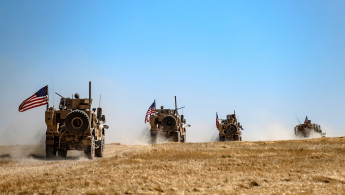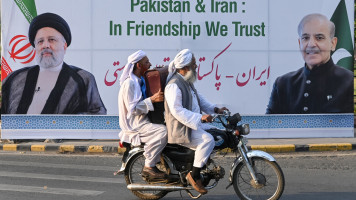What's next for Syria under the Biden administration?
An uprising, which initially represented freedom and a response to deeply rooted national grievances against an oppressive government, soon turned into a war that now involves regional and international actors.
With the new US administration potentially adopting a bolder approach and shifting American policy towards the conflict, what's next for Syria under Joe Biden?
Since his arrival to the White House on 20 January 2021, Biden has been keen to strengthen the US presence in Syria, whether through increased military involvement or through the US-led international coalition to defeat the Islamic State (IS).
However, an increased US presence does not necessarily mean Washington will be seeking to assume leadership on the Syrian conflict. The US would likely maintain a distance and coordinate through other actors such as Qatar and Turkey as proxies, as reflected by Russian Foreign Minister Sergey Lavrov's recent visit to Doha to meet his Qatari and Turkish counterparts and discuss ending the ten-year war through a trilateral consultation process.
The US is also likely to focus its efforts on the humanitarian side of the conflict while coordinating with regional and international actors. This is evident in statements from the US State Department. "We also seek to restore American leadership when it comes to humanitarian aid. As we know, Syria is a humanitarian catastrophe," US Department spokesperson Ned Price said earlier in March.
 |
More US involvement necessitates cooperating and coordinating with major players in Syria, none of which include the regime |  |
Furthermore, in mid-February, the Biden administration appointed Aimee Cutrona as acting special representative for Syria engagement, replacing Joel Rayburn who held the position under former president Donald Trump and was one of the main architects of the former administration's Syria policy.
The appointment of Cutrona suggests that she might perform James Jeffrey's former role, which increases the possibility of returning to a formula that had been adopted prior to Trump, where Syria did not have a special envoy, but rather an official overseeing the issue. This indicates that Syria would not be a priority for the Biden administration, given the importance of other regional issues, most notably the Iranian nuclear deal.
Nonetheless, Biden's shifting policy toward Syria is a departure from the Trump administration's reckless handling of the conflict, which left Syria as a playground for Russia and Iran. Trump discouraged any action on Syria, advocating the withdrawal of US troops, alienating the population by introducing a ban on immigration from several Muslim majority countries, and actively working to prevent the US from offering refuge to the conflict's children.
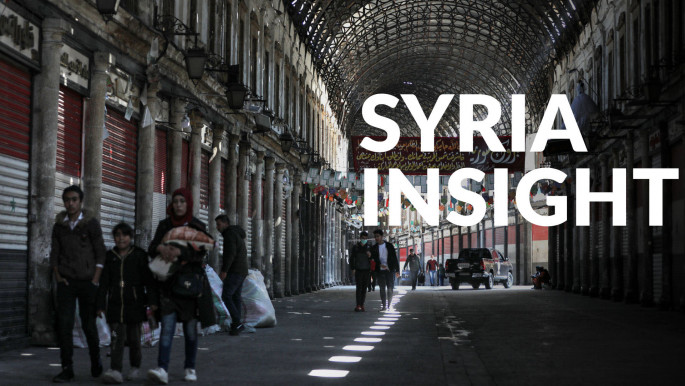 |
|
| Syria Insight: Bread queues and hunger in Assad's Syria |
While Biden seems to adopt smart power - using airstrikes in Syria to deter Iran - Trump sought action against Assad to appear decisive and distinguish himself from Obama. To that end, Trump ordered an airstrike against Shayrat airfield, south Homs, in 2017, in response to Assad's sarin chemical gas attack on Khan Sheikhoun.
Although the Shayrat strike against Assad was the most sensible decision made by Trump on Syria, it was done neither in self-defence nor with UN authority.
Biden's policy differs from Obama's timid approach, which was reflected in his infamous decision to walk back from his "red line" over Assad's norm-breaking use of chemical weapons against his own people in 2013.
Obama chose diplomacy over military action, brokering an agreement with Russia's Vladimir Putin under which UN inspectors would dismantle Assad's chemical weapons capability. But the UN operation was either incomplete or the Assad regime reintroduced chemical weapons after the deal, with or without Russia's knowledge.
However, more American involvement in Syria following four years of neglect necessitates cooperating and coordinating with major players in Syria, none of which include the Syrian regime.
Curbing Iran's presence
In the first military action of his presidency, in February Biden approved airstrikes against Iran-backed militias' logistical and staging targets, including Kataib Hezbollah and Kataib Sayyid Al-Shuhadaa, in Syria's Al-Bukamal. According to the Pentagon spokesperson John Kirby, the US strikes came in response to attacks against US contractors in northern Iraq the previous week.
When asked about the message to Iran behind the air strikes, Biden said: "You can't act with impunity. Be careful!" The US strikes in Syria, however, followed US and European invitations to restart talks on the 2015 nuclear deal with Tehran, which were categorically rejected by Iran.
 |
Biden's divergences with the Obama administration on Syria are subtle yet bolder in terms of dealing with major players such as Russia, Iran and Turkey |  |
It is likely that the US strikes in Syria were inseparable from the attempt to pencil a new agreement with Iran, which includes other contentious issues besides the nuclear program, especially the ballistic missile program and Iran's regional role. America's determination to pressure Iran was also reflected in the imposition of further sanctions against Iranian officials for human rights violations on 10 March 2021.
The recent military strikes in Syria were not only a response to the missile attacks against US interests in Iraq, but rather an indication that the US intends to raise the stakes in Syria, to effectively curb Iranian influence in the future. Washington's choice of whether or not to continue using Syria for its deterrence policy against Iran will certainly have a bearing on Syria's future.
Limiting Russia's options
Russia is another major player. In light of the Biden administration's continued assessment that Russian influence in Syria constitutes a threat to US national security, Biden would likely be keen to exert political and military pressure on Moscow. The US has already begun to set the tone for Putin that Russia's insistence on resolving the Syrian conflict according to its own demands will not be an option.
Russia would likely have to cope with a limited presence in the west of Syria, should it be unable or unwilling to push for a political transition that excludes Bashar al-Assad from any future political solution. The new Syria peace initiative put forward in March by the foreign ministers of Russia, Turkey and Qatar reiterated that a political solution to the Syrian conflict should be based on UN Security Council Resolution 2254 and the Geneva Communique of 2012, both points emphasised by Biden.
With the US increasing its military presence in northeast Syria, whether to reinforce its troops or increase capabilities of the anti-IS international coalition, Russian influence in Syria will not continue unchallenged. Multiple reports indicate that in mid-February 50 lorries carrying armoured vehicles, weapons, and military and logistical equipment were deployed to Qamishli to reportedly establish a new coalition military base at the Iraqi, Syrian and Turkish borders. Further military reinforcements were also reported to have been sent to US forces in "Haql Al-Omar" military base in Deir az-Zour.
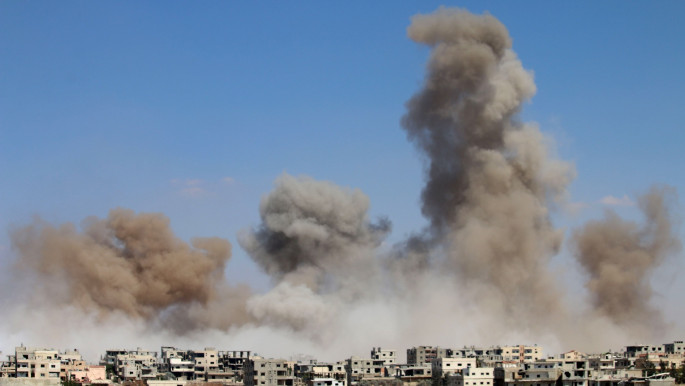 |
|
| Read more: The cradle of Syria's revolution: Daraa ten years on |
While military escalation between the US and Russia is unlikely in the foreseeable future, there are limited options for Moscow. Russia can cooperate with the US to reach a political settlement on the conflict, accept limited yet unsustainable regional influence over Syria, which would likely be shared by the US and Turkey in the north, or engage in a confrontation with the US, which could be costly and lead to dire consequences. Whichever trajectory Russia chooses will be decisive for Syria's future.
There is also another sticking point between the US and Russia. Moscow is keen to repeal the 2019 Caesar Syria Civilian Protection Act, which targeted a series of figures associated with the Syrian regime, increasing pressure on Assad. The US sanctions targeted anyone providing significant technical and financial support to Assad's regime, in an attempt to further isolate it from the rest of the world.
However, the Caesar Act could also have a significant impact on Russia's reconstruction investments in Syria following the end of the war. While Russia claims that the sanctions bill is a subversion of Syria's sovereignty, in reality, Russia is committed to investing in an Assad-led reconstruction process, as it has already secured reconstruction contracts with the regime. As the Assad regime continues to bleed under the Caesar Act, Russia will hope that the sanctions are diluted over time through waivers or the easing of restrictions on humanitarian grounds.
The US needs Turkey in Syria
Despite Turkey's insistence on finalising the S-400 missile deal with Russia, its endeavour to secure other arms suppliers outside NATO, and its unwillingness or inability to neutralise extremist elements in northern Syria, the US needs Turkey. Ankara plays an important role in limiting the Syrian regime's militias and their Iranian and Russian allies from expanding over the entire Syrian territory.
On 2 March 2021, the US State Department Spokesman Ned Price said, "We have shared interests with Turkey, specifically when it comes to Syria." He added: "We will continue to work with Turkey, and to work constructively with Turkey to achieve our common interests."
 |
Washington is keen to strengthen its presence in Syria to be able to participate in any potential political and security arrangements |  |
However, while the US is seeking to increase its presence in northwest Syria, the Biden administration has begun to coordinate with the Syrian Democratic Forces (SDF), Washington's pivotal ally in the fight against IS. The controversy stems from the fact that the SDF is controlled by the People's Protection Units (YPG), which has links to the PKK, which Turkey and the US consider a "terrorist" group. Increasing cooperation, and even possible recognition of the Kurdish "Autonomous Administration of North and East Syria", are likely to antagonise Turkey and limit its influence in northern Syria.
As a result, Turkey is likely to pressure the US to discontinue supporting the Syrian Kurds. Ankara has the option to continue cooperation with Moscow and Tehran, at least within the framework of the Astana process, which was launched in 2017 to de-escalate the conflict militarily but later turned into a form of political settlement that allowed Russia to further fragment the Syrian opposition.
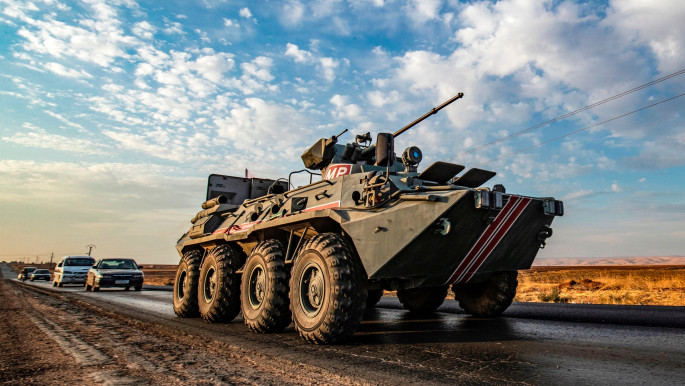 |
|
| From Syria to Nagorno-Karabakh: Russia and Turkey's complex regional rivalry |
Ankara is unlikely to trust the Biden administration and easily give up arrangements it has built with Russia and Iran in Syria without American guarantees. This was evidenced on 16 February 2021 when Turkey held a trilateral meeting with Russia and Iran in Sochi to galvanise the Astana process in an attempt to monopolise the solution for the Syrian conflict.
The hard work is yet to come
Biden's divergences with the Obama administration on Syria are subtle, yet bolder in terms of dealing with major players such as Russia, Iran and Turkey. Biden's decision to launch strikes against Iran-backed militias in Syria indicates US resolve to stand up to Tehran's provocations in the wider region, and perhaps represents a manoeuvre to shape a new American position in Syria.
Washington is keen to strengthen its presence in Syria to be able to participate in any potential political and security arrangements, especially in light of the current failure of the Geneva process. However, restoring a US role in Syria can no longer be attainable without Turkey and Russia's involvement. The power balance that Russia, Turkey and Iran have built in Syria will not be easy to change.
Hakim Khatib is a research fellow at the Frankfurt Research Centre on Global Islam at the Goethe University Frankfurt in Germany and the editor-in-chief of the Mashreq Politics and Culture Journal.
